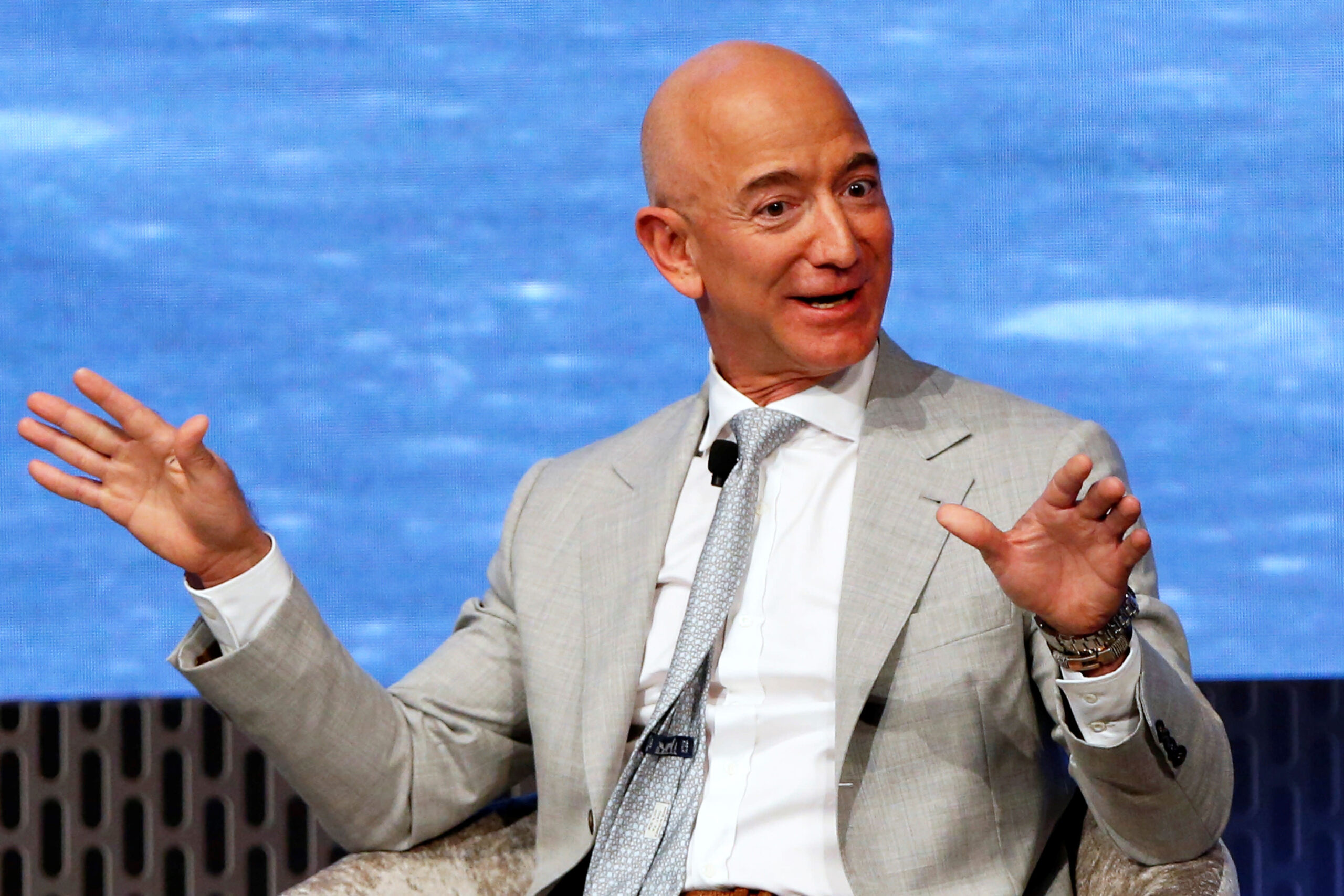“I don’t keep a strict schedule,” Bezos said, in an episode first released in December 2023. “My meetings often take longer than I planned for them, because I believe in [mind] wander.”
For example, Bezos makes time during meetings for people to bounce ideas off each other, no matter how small or spontaneous, he said — a process he called a “messy meeting.” Those sessions usually don’t have a set end time, he added.
“When I sit down [in] a meeting, I don’t know how long the meeting is going to take if we’re trying to solve a problem,” Bezos said. “The reality is that we may have to wander for a long time … I think there’s certainly nothing more fun than sitting at a whiteboard with a bunch of smart people and spitting and coming up with new ideas and objections to those ideas, and then solving the objections and going back and forth.”
He added that “many people feel like wandering is inefficient,” but studies show that a divergent mind can increase a person’s productivity, creativity and happiness.
Some productivity experts swear by the time-blocking method, which involves blocking off specific amounts of time on your calendar for each task you need to accomplish each day—sometimes even including meal breaks and coffee chats.
But the strategy can leave you feeling stressed and burned out, Yale University psychology professor Laurie Santos told attendees at SXSW in March. Meanwhile, a 2016 study of more than 200 college students found that their creativity improved significantly when they allowed their minds to wander.
If you’re the type of person who gets bogged down by a busy schedule, taking time to let your mind wander can help you come up with ideas you might not have considered in a more structured schedule—provided you do it effectively and not just by zoning out, psychologist Jill Suttie wrote for the University of California Berkeley’s Greater Good magazine in 2018.
When a problem arises at work or school, take some time without distractions—like your phone or a barrage of unread emails—and try to come up with a series of solutions, big and small, then throw them away. your colleagues to fill them in, Suttie wrote. It may sound counterintuitive, but taking a break from your work routine to let your mind wander can sometimes be the most effective way to solve a problem that otherwise makes you feel stuck.
“Under the right circumstances, a wandering mind can benefit us and perhaps those around us,” Suttie wrote. “The trick is knowing when to free your mind.”
Bezos lets his mind wander to consider the pros and cons of his ideas. After they’ve survived his “first level of review,” he pitches them to others for a productive group brainstorm to help the idea take shape.
For Bezos, this initial “intuition” is a jumping-off point that can lead to more exploration with other people. The results can be both “fun” and productive as you work together to take a possible creative solution and figure out how to make it work in reality, he said.
“I’ll often say, ‘Look, it’s going to be very easy for you to find objections to this idea, but work with me…'” Bezos told Friedman. “Because it’s really easy to kill new ideas in the beginning. So you have to warn people and say, ‘I know it’s going to take a lot of work to get this to a fully formed idea. Let’s get started. this will be fun.”
Want to make extra money outside of your day job? Register Per CNBC’s New Online Course How To Earn Passive Income Online to learn about common passive income streams, tips for getting started, and real-life success stories.
Plus, sign up for CNBC Make It’s newsletter to get tips and tricks for success at work, with money and in life.
